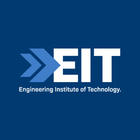52886WA Advanced Diploma of Industrial Automation Engineering
52886WA Advanced Diploma of Industrial Automation Engineering
This advanced diploma is delivered with a strong practical focus. Upon completion of this program, students emerge from the course able to demonstrate specialised and integrated technical and theoretical knowledge, with considerable depth, in subject matter related to industrial automation engineering. Program Details Graduates will have the knowledge and skills…
Categories
COURSE DESCRIPTION
This advanced diploma is delivered with a strong practical focus. Upon completion of this program, students emerge from the course able to demonstrate specialised and integrated technical and theoretical knowledge, with considerable depth, in subject matter related to industrial automation engineering.
Program Details
Graduates will have the knowledge and skills to contribute to the capacity of industrial automation engineering and related industries to maintain their competitiveness in a global market-place through the application of latest technologies, value adding to existing products, process and services and the development of new, sustainable and innovative solutions.
This practical program avoids too much emphasis on theory. The lecturers presenting this advanced diploma are highly experienced engineers from industry who have worked in the automation, instrumentation, and control areas. The delivery methodology — live and interactive webinars with the use of state-of-the-art technologies such as remote and virtual laboratories and simulation software — ensures you graduate with cutting-edge skills that are valued by employers around the world.
Program Structure
The program is composed of 18 modules and 2 units of competency. These modules cover a range of aspects to provide you with maximum practical coverage in the field of industrial automation engineering.
Potential Job Outcomes
- Automation/Controls Technician
- Maintenance Technician
- Industrial Service Technician
- Field Technician
- Process Control Technician
- Project Supervisor
- Engineering Associate
- Maintenance Supervisor
- PLC System Engineering/Associate
- Electronics Field Technician
- Equipment Tradesperson and Machine Repair
- Simulation Technician
- Automation Supervisor
- Electronics Assembler
The maximum amount of credit we can approve as a combination of articulated credit (EIT Advanced Diploma) and RPL is 50% for both bachelor’s and master’s courses. The maximum amount of credit provided with only external qualifications and experience is 33%.
REQUIREMENTS
Student applications are considered on a case-by-case basis, and the following minimum entry requirements are to be strictly adhered to:
Applicants must have at least a Year 12 or Cert III trade qualification or equivalent in a related field;
AND
They must have at least 2 years’ work experience in a related field
OR
At least 4 years’ work experience in a related field – subject to acceptance of an application for Credit to Entry
AND
Satisfactory English language proficiency at an English pass level in a Senior Certificate of Education or equivalent;
OR
A specified level of achievement in a recognised English language test such as: IELTS (or equivalent) at a score of at least 5.5 (with no individual band score less than 5.0); or equivalent;
OR
Satisfactory completion of another course offered by EIT, or by another tertiary institution, in English.
EDUCATIONAL INSTITUTION
The Engineering Institute of Technology (EIT) delivers industry driven programs to equip its students with the skills required in the real industrial world. Its study options are available across Perth and Melbourne; and include classroom sessions, practical lab exercises, assessments, class discussions and self-study. Additionally, students enjoy access to industry experts based around the globe through live and interactive online presentations. All EIT programs provide access to remote laboratories and cutting-edge simulation software. Hands-on laboratory practicals are an essential component of EIT’s programs to ensure students put theory into practice. These hands-on workshops cover the major discipline-specific applied skills required for competency in engineering practice.




